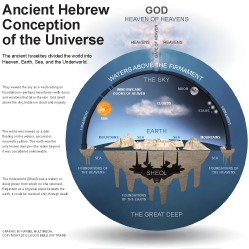33:1–22 In this praise psalm, the psalmist lists several reasons Yahweh is worthy of praise. He encourages a congregation of righteous people to sing songs of praise and thanksgiving to Yahweh (Psa 33:1–3). He lists Yahweh’s faithfulness, righteousness, and justice as reasons to praise Him (vv. 4–5). He then mentions Yahweh’s power as evidenced in creation (vv. 5–9) and His ultimate authority over the earth (vv. 10–12). He shows Yahweh’s superiority over humanity (vv. 13–17) before affirming His loyalty to those who fear (revere) Him (vv. 18–19). Finally, he leads the congregation in a prayer expressing trust in Yahweh (vv. 20–22). |
33:1 Exult The Hebrew word used here, ranan (which may be translated “to cry out” or “to exult”), describes the proper response to the greatness of Yahweh. The psalmist encourages the righteous to shout praises to Him.
33:2 the lyre An instrument with six to eight strings, used in celebrations, worship, and prophecy (1 Sam 10:5). It is often mentioned with the 10-stringed harp (1 Kgs 10:12; 2 Chr 29:25).
with six to eight strings, used in celebrations, worship, and prophecy (1 Sam 10:5). It is often mentioned with the 10-stringed harp (1 Kgs 10:12; 2 Chr 29:25).
33:3 Sing to him a new song Probably refers to a change in outlook or frame of mind rather than a written song.
33:4 the word of Yahweh The righteous must praise Yahweh for His word and work.
is upright The Hebrew word used here, yashar, may be translated as “straight” or “level.” It emphasizes that Yahweh’s word is honest and trustworthy (Prov 8:8–9).
33:5 righteousness and justice Righteousness (tsedeq) describes doing what is right. Justice (mishpat) is related to God’s judgment. The terms are closely related, as Yahweh is often portrayed as a just and righteous judge (see Ps 9:7–8 and note).
33:6 By the word of Yahweh The word of Yahweh is both trustworthy and powerful. He created the heavens and earth by His word.
33:7 He gathered the waters of Ancient Near Eastern creation accounts describe the supreme deity subduing the sea. See note on Job 38:8.
He put the deeps in storehouses Reflecting ancient Near Eastern cosmology. Ancients believed the earth sat atop pillars in deep waters (Gen 7:11; Job 38:16). See note on Gen 1:2.
33:8 Let all the earth fear Yahweh Fearing God involves reverently trusting and obeying Him (Psa 40:3; Deut 6:2). See note on Job 1:1.
 Fearing God in the Old Testament
Fearing God in the Old Testament
33:10 brings to nothing the plan of nations The psalmist has described elsewhere (Ps 2:1) how the nations plot against God’s rule.
33:11 The plan of Yahweh stands firm forever Yahweh can frustrate the counsel of the nations and Yahweh’s counsel is eternal and unbreakable.
33:12 Blessed is the nation See note on 1:1.
33:14 his dwelling The Hebrew text here portrays Yahweh as a sovereign king who looks out on His people from His heavenly throne (see 9:7 and note).
33:16–17 The psalmist reveals that it is futile to trust in one’s own might. The strength of armies is nothing compared to the strength of Yahweh. Those who trust in the power of an army will not find salvation; they should trust in Yahweh instead (v. 20). See 20:7 and note. |
33:18 the eye of Yahweh Describes Yahweh’s protection and care (see note on Job 36:7). He will protect those who fear Him (Ps 33:6). The psalmist is confident Yahweh will deliver and protect those who trust in Him.
33:20 waits for Yahweh Anticipates that He will act to deliver. See note on 27:14.
shield A common metaphor for God’s protection.
33:21 his holy name The name of Yahweh represents His power and character (see Exod 3).
33:22 your loyal love Though the psalmist has asserted that Yahweh accompanies those who fear and trust in Him, he still petitions Yahweh to maintain his steadfast love to them.

|
About Faithlife Study BibleFaithlife Study Bible (FSB) is your guide to the ancient world of the Old and New Testaments, with study notes and articles that draw from a wide range of academic research. FSB helps you learn how to think about interpretation methods and issues so that you can gain a deeper understanding of the text. |
| Copyright |
Copyright 2012 Logos Bible Software. |
| Support Info | fsb |
 Loading…
Loading…

